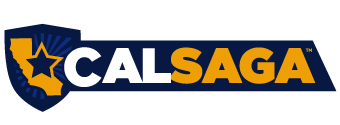NEW FEDERAL RELIEF BILL LETS EMPLOYERS OFF THE HOOK: FFCRA COVID-19 PAID LEAVE OBLIGATIONS HAVE EXPIRED
Ki Lin Tay, Esq.and Jaimee K. Wellerstein, Esq., Bradley & Gmelich, CALSAGA Legal Advisor
The Families First Coronavirus Response Act of 2020 (FFCRA), the first ever paid leave of absence law to be enacted on a national level, mandated that certain employers provide emergency paid sick leave and expanded paid family and medical leave to eligible employees experiencing COVID-19-related issues. The FFCRA was passed in March of 2020 in the face of the COVID-19 health crisis, and seemingly just as quickly as it was enacted, it has come to an end.
On December 21, 2020, Congress opted not to extend FFCRA paid leave obligations beyond 2020, leaving the FFCRA to expire as planned on December 31. As a result, employers are no longer obligated to provide FFCRA paid leave to employees, despite the common belief that these entitlements would be extended into 2021, to maintain some level of paid leave benefit while the world continues to fight the COVID-19 pandemic.
The subject of paid leave, however, was not entirely abandoned by the federal government. On December 27, 2020, the federal government signed its latest COVID-19 stimulus bill into law. The Consolidated Appropriations Act of 2021 allows employers – on a voluntary basis – to continue to provide paid leave entitlements through March 31, 2021 in exchange for a payroll tax credit.
With all of the ongoing changes in the COVID-19 legal landscape, what does this mean for employers?
FFCRA Paid Leave Obligations Expired on December 31, 2020, But Expanded Tax Credits are Available Through March 31, 2021
As of December 31, 2020, employers with fewer than 500 employees are no longer required to provide FFCRA COVID-19 paid leave benefits to employees. This includes both emergency paid sick leave (EPSL) and paid childcare leave under the Emergency Family and Medical Leave Expansion Act (EFMLEA). While employers have no further obligation to provide FFCRA benefits to employees, employers may choose to continue providing FFCRA paid leave benefits to eligible employees and will receive a payroll tax credit for such paid leave through March 31, 2021.
Importantly, while the Consolidated Appropriations Act of 2021 extends the EPSL and EFMLEA tax credits created by the FFCRA until March 31, 2021, it does not create any additional paid benefits for employees who have exhausted their 80 hours of EPSL or 12 weeks of EFMLEA leave under the FFCRA. Instead, the bill merely authorizes tax credits through March 31, 2021, which allows (but does not require) employers to extend FFCRA benefits to eligible employees to receive the corresponding tax benefit.
Importantly, California’s COVID-19 Supplemental Paid Sick Leave Law (CSPSL) and COVID-19 Food Sector Supplemental Paid Sick Leave Law (CFSSPSL), which mandate 80 hours of emergency paid sick leave for Californians employed by employers with 500 or more employees, were to be extended if the FFCRA’s benefits were extended. Thus, along with the expiration of the FFCRA’s benefits, California’s CPSPSL and CFSSPSL paid sick leave mandates have also expired as of December 31, 2020. Since the California paid sick leave benefits do not provide a corresponding tax credit, the federal extension of tax credits to March 2021 does not appear to impact CSPSL or CFSSPSL. California employers should monitor the Division of Labor Standards Enforcement (DLSE) website for the most up-to-date information. In addition, all employers should review any applicable state or local leave ordinances.
No Retaliation By Employers
In order to remain eligible for payroll tax credits for continuing FFCRA paid leave benefits through March 31, 2021, employers must not retaliate, discharge, discipline, or in any way discriminate against employees who seek to take paid leave as provided for in the FFCRA. While this prohibition is addressed in the context of eligibility for expanded tax credits, employers should be mindful that the anti-retaliation provisions of the FFCRA are still applicable to any past use of FFCRA benefits, even if employers do not extend benefits through the first calendar quarter of 2021.
Employers Must Employ Accurate Recordkeeping of COVID-19-Related Leave
If employers opt to voluntarily provide FFCRA paid leave benefits between January 1, 2021 through March 31, 2021, in order to claim the expanded tax credits, employers must keep accurate records of such COVID-19-related leave and ensure that they comply with the leave limits imposed by the FFCRA. That is, employers must pay close attention to the amount of paid leave for which they will be eligible for tax credits, and should adhere to the specific limitations on paid leave afforded by the FFCRA, as such limits will apply to the available payroll tax credits. With respect to employer-provided paid leave for which tax credits will not be sought, such leave may be tracked separately and administered in accordance with the employer’s paid leave policies.
As we enter 2021, with the end of the pandemic nowhere in sight, employers must brace themselves for another challenging year of navigating COVID-19 and its substantial impact on the workplace. In the meantime, the expanded tax credits afforded by the new federal stimulus bill may provide some degree of support for employers seeking to help their employees stay afloat as they face difficult circumstances caused by COVID-19.
Lessons for Employers: Employers should decide whether to voluntarily extend FFCRA paid leave benefits to employees through March 31, 2021. If doing so, employers must continue to accurately document the use of such leave and ensure compliance with appropriate recordkeeping in order to receive the expanded tax credits. Additionally, employers should determine whether other state and local laws mandate the provision of paid leave benefits similar to those required by the FFCRA, and should closely monitor any developments and adhere to such laws, as applicable to their jurisdiction.
Need assistance with managing your workforce during COVID-19? Contact the attorneys at Bradley & Gmelich LLP.
 K. Wellerstein is a Partner at Bradley & Gmelich LLP and the Head of the firm’s Employment Department. Jaimee concentrates her practice in representing employers in all aspects of employment law, including defense of wage and hour class actions, PAGA claims, discrimination, retaliation, harassment, wrongful discharge, misclassification, and other employment related lawsuits. She also provides employment counseling and training in all of these areas. The firm acts as general counsel for many security companies in California.
K. Wellerstein is a Partner at Bradley & Gmelich LLP and the Head of the firm’s Employment Department. Jaimee concentrates her practice in representing employers in all aspects of employment law, including defense of wage and hour class actions, PAGA claims, discrimination, retaliation, harassment, wrongful discharge, misclassification, and other employment related lawsuits. She also provides employment counseling and training in all of these areas. The firm acts as general counsel for many security companies in California.
Jaimee routinely represents employers in federal and state courts and in arbitration proceedings throughout the state, as well as at administrative proceedings before the Equal Employment Opportunity Commission, the California Department of Labor Standards Enforcement, the United States Department of Labor, and other federal and state agencies. Jaimee assists as a Legal Advisor to CALSAGA, and is a member of ASIS International. She is rated AV-Preeminent by Martindale Hubbell, the highest peer rating available. jwellerstein@bglawyers.com / 818-243-5200.
 Ki Lin Tay is a Senior Associate Attorney at Bradley & Gmelich LLP. Ki Lin focuses her practice on representing employers and providing strategic advice and counsel in all aspects of employment law and workplace matters, including employment law compliance, employment litigation, workplace investigations, internal audits, wrongful termination, discrimination, retaliation, harassment, misclassification, wage and hour, and general contract matters.
Ki Lin Tay is a Senior Associate Attorney at Bradley & Gmelich LLP. Ki Lin focuses her practice on representing employers and providing strategic advice and counsel in all aspects of employment law and workplace matters, including employment law compliance, employment litigation, workplace investigations, internal audits, wrongful termination, discrimination, retaliation, harassment, misclassification, wage and hour, and general contract matters.
As a qualified attorney in both the United States and Canada, Ki Lin’s experience representing and defending employers in her legal practice is broad and international in scope. Prior to joining the Firm, Ki Lin served as in-house company Counsel and Head of Legal for a national human resources compliance company, arming her with a unique understanding of the dynamics from both sides of the table. Ki Lin specializes in working proactively with employers to develop business and legal strategies that mitigate the risk of employment disputes and maintain compliance with the complex and dynamic landscape of employment law. She regularly provides employers with the mechanisms needed to reduce potential liability and exposure, including employment law counseling, workplace training programs, company policy and handbooks, and all other employment-related contracts and documents used to manage legal risk. ktay@bglawyers.com

